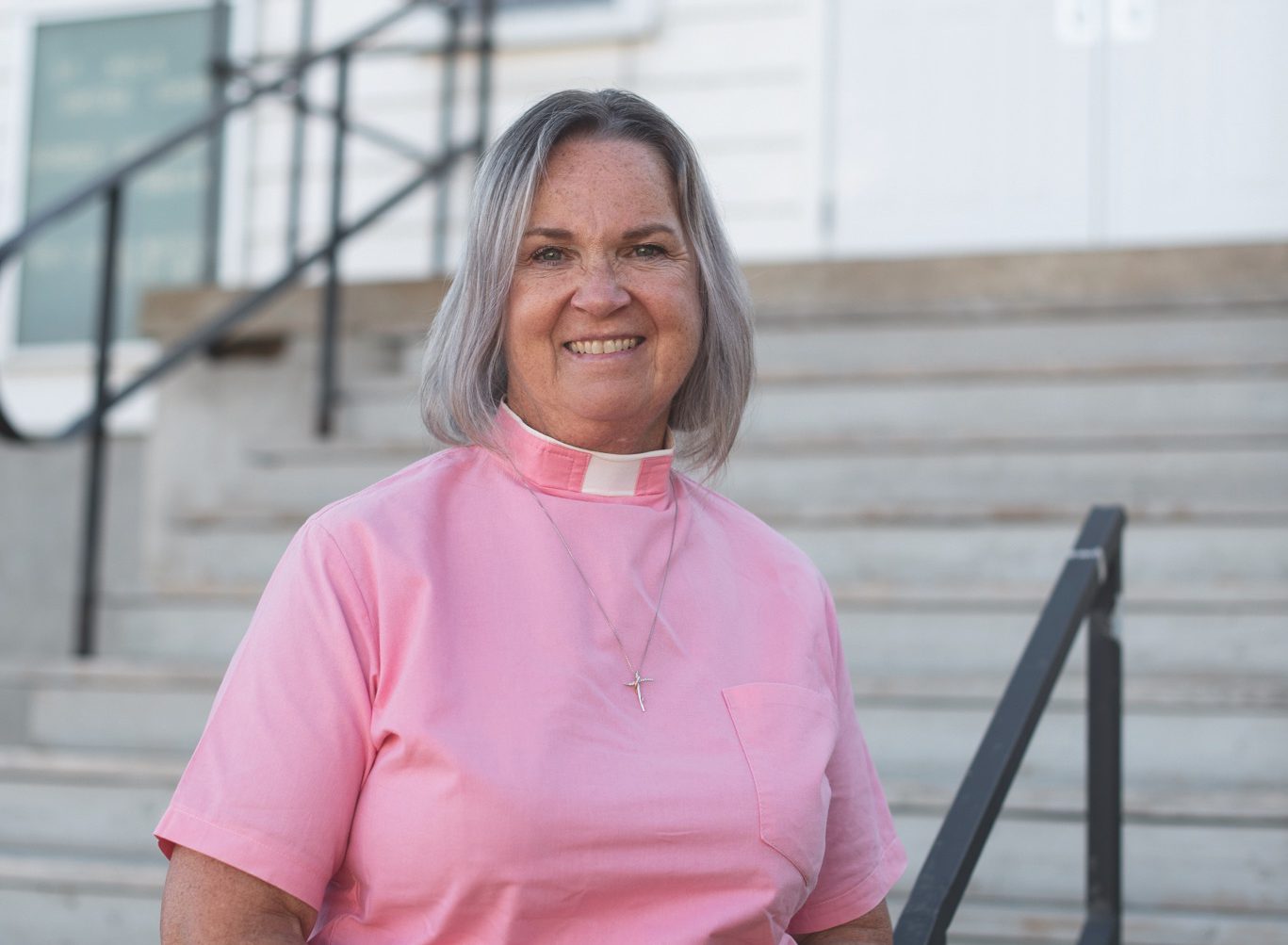Bancroft, Ont., is traditionally one of the province’s poorest regions. As more and more ex-Torontonians move in, property values have quadrupled in less than five years, and rent prices are high. For the first time, this rural small town of 3,500 is dealing with a homelessness crisis.
Town council asked Rev. Lynn Watson of St. Paul’s United if the church could help. Their shelter, the Sanctuary, opened in December 2019 — and closed less than a month later. She spoke with Sherwood Hines about what went wrong, what she learned and how these issues are more important than ever.
You may unsubscribe from any of our newsletters at any time.
More on Broadview:
- The heartbreaking and deeply Christian task of presiding over fentanyl funerals
- This church’s vending machine gives out free needles, not snacks
- How harm reduction can help end the drug crisis
On the shelter’s beginning:
I was asked to attend a meeting of the town council’s community safety and well-being committee to discuss the rise in homelessness. Could St. Paul’s help? This was a personal issue, because I have a daughter who has struggled with mental health and addictions, and it was a shelter that kept her safe until she got off the streets.
Still, my first response was to say no; a shelter would be too much chaos for the church. But I knew the town was in a real crisis. We began handing out 20 gift certificates a month for the local supermarket. They disappeared in less than an hour. The congregation stepped up and doubled the money, but they still don’t last a day.
I thought about how back in the 1970s St. Paul’s sponsored four Vietnamese families, and in 2016 we rallied the community to support a Syrian family. I just knew our congregation would support the idea. I took the shelter proposal to the elders and the stewards. They unanimously approved, and a week later the Sanctuary opened.
On what happened:
The response from the community was overwhelming. We were bombarded with volunteers, food, clothes, bedding. We received financial support from other churches.
But it didn’t take long for everyone involved — the volunteers, the police, the fire department — to recognize that we were in over our heads. We opened with beds for six people. On our last night, we had 20 people. There were too many guests. We had to vacate the space by 8 a.m. for other community groups. How do you make people leave when it’s -20 C outside? None of us were trained to deal with opioid and meth addictions, or how best to de-escalate a violent situation. The final straw occurred when a man overdosed on sleeping pills. Thankfully, he survived. We realized we were losing control of the situation. We kept our guests safe from the elements until we couldn’t do it any longer.
On what she learned:
The first thing you realize is that hoarding and cheating are built into our economics. People who are successful at this game judge others harshly. We have to remember that when our neighbours suffer, we all suffer. Poverty, mental illness and trauma are at the heart of the crisis.
Homeless shelters let politicians off the hook; they don’t have to be responsible for solving the problem. We must continue to hold our municipal leaders’ feet to the fire on the housing crisis — even when they continue to do nothing.
We have to remember that when our neighbours suffer, we all suffer.
We underestimated how big the problem is. The fact that our congregation stepped up tells me there is a will to do something. We can’t just look inwards or be a Sunday morning church. We have to be more inclusive.
***
Sherwood Hines is a freelance writer who lives in Bancroft, Ont.
This interview first appeared in Broadview’s September 2021 issue with the title “‘We were in over our heads.'” It has been edited and condensed for length and clarity.















I value the passion and wisdom you and your congregation to both “open and close” your initiative. Thank you for recognizing the limits you had. Homelessness and mental health issues are linked and often rooted in trauma. Yes, some ministries will spill over into other relationships (like renters or other programs) that don’t want to be affected in any way. Using a risk assessment process (like the one I introduced in the free “re-entry to worship” videos last summer) allow you to think forward into the realization of risks and work on mitigating and managing those risks, and make clear what values will take precedence for your congregation if that happens. Also, Trauma Informed Ministry, a primer I created for ministers and ministries equips leaders and volunteers with 6 principles for responding to people who have trauma. But the link between mental health issues and homelessness may mean that mental health professionals from the community need to be part of the team, as well. (Our trauma informed ministry also has limits.) The main thesis of the primer is that “ministry is marinating in trauma” on any given day. For denominations like ours that stand in or close to ministries of justice in the world and respond to disasters of every kind, those principles help us to shape responses and inform decisions, processes and resources. Sharing your experience with all of us is invaluable. With you in ministry, Diane.
Such a sad scenario which I’m sure is the reality in many communities. It’s wonderful how this church tried so hard to extend the love of Christ in such a needed practical way. But how do you help a group of people within our society who are so damaged, and therefor often don’t appreciate all that is attempted for their benefit.
A sad story of love. I pray for all these hurting people who are having a hard time overcoming addiction, and for Rev Lynn Watson and all the caring people who gave of themselves out of genuine care and love … may you be blessed.
If you want a model for successful faith based community ministries which integrates solutions that mitigate homelessness and partner with the mental health community study the Lighthouse Building Hope Ministry in Orillia Ont.
A good idea WG, but the resources in Orillia are much greater than the resources in Bancroft. Just visit their McDonald’s.
I didn’t want to comment on this, but the Town of Bancroft should be aiming its taxes on those who are from “out-of-town”. This would solve some of their troubles.
Selling themselves as the “Mineral Capital of Canada” doesn’t quite work any longer.
Their prettiest nature area (Egan Chutes) isn’t even a destination. (2 minutes out of town.) Eagle’s Nest is a nice stop over, but you don’t need to “see town” to visit either location.
1.5 hours from Belleville and Peterborough, forget Lowes, Costco, and cheap gas or groceries.
Gary. Yes. The scale is different but the principles for ensuring success are the same. The Lighthouse was a Christian based ministry that managed to raise over 15 million dollars from municipal, county, provincial and federal governments, and from churches and private donors in about 3 years. It was able to get professional volunteers from within the community -archirects, accountants, entrepreneurs. Ect. How they led and accomplished this without giving up their identity as a Christian ministry is worth a case study for the rest of us.